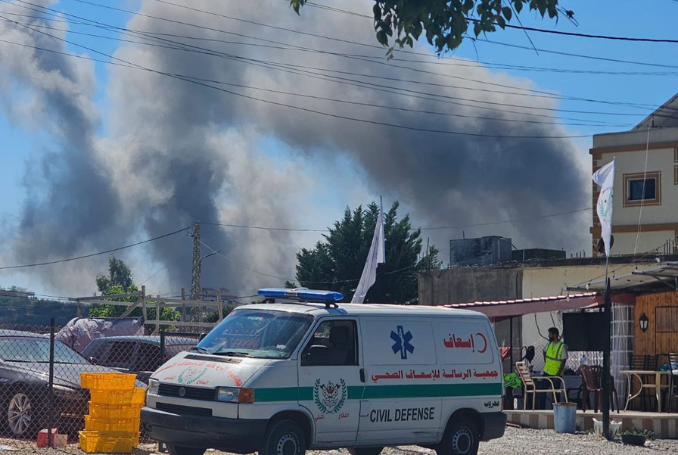
The UN organization revealed that it has recorded 160 Israeli attacks on the health care system since the onset of Israel’s war on Lebanon, killing 241 and injuring around 300.
The World Health Organization (WHO) representative in Lebanon, Abdinasir Abubakar, stressed on Thursday the urgent need to restore health services in South and East Lebanon as one million people are returning to their homes following the ceasefire deal between Lebanon and Israel, Anadolu news agency reported.
At a press briefing in Geneva, Abubakar welcomed the ceasefire deal between Lebanon and Israel saying that it provides an “opportunity and critical window” to attend to the urgent humanitarian needs that resulted from the war.
“The scale of the healthcare challenge remains enormous, and from now until the next few months, we have to try to re-establish the health services in the conflict-affected areas,” Abubakar said, stressing that around one million people are moving back to the south and the east.
On the topic, WHO’s Health Information and Risk Assessment Officer, Nabil Tabbal, revealed to Anadolu that the United Nations agency has recorded 160 Israeli attacks on the health care system and personnel since the onset of Israel’s war on Lebanon, resulting in the death of 241 and the injuring around 300.
Tabbal added that 10 percent of the hospitals were affected by the Israeli attacks, becoming either non-operational or partially operational.
Lebanon Accuses Israel of Breaches of Ceasefire Deal amid Netanyahu’s Threats
Attention Steered to Gaza
On his part, the Executive Director of WHO’s Health Emergencies Program, Michael Ryan, while welcoming the ceasefire deal between Lebanon and Israel, stressed that attention must quickly be steered towards Gaza since the situation in the besieged enclave is “catastrophic.”
“The attention must now move urgently to Gaza. We have to stop the fighting in Gaza,” Ryan emphasized according to Anadolu.
He went on to say: “The situation is catastrophic. The (health) system is under huge pressure.”
“It’s really important that whatever has been achieved now is secured in the Lebanon-Israel conflict, but that we have the same process achieved as quickly as possible for Gaza,” he concluded.
War on Lebanon
The United States brokered a fragile ceasefire deal on Tuesday between Lebanon and Israel that stipulates the end of hostilities on both sides, the withdrawal of the Israeli occupation army south of the Blue Line de facto border in a phased manner, and the deployment of the Lebanese Army in South Lebanon within 60 days.
Since the start of the Israeli war on Gaza, on October 7, 2023, the Lebanese movement Hezbollah has engaged directly, but relatively in a limited way in the war against the Israeli occupation.
Israel escalated its aggression with the cyber-terror attacks on September 17 and 18, which claimed the lives of at least 37 people including children, and injured around 3000 others.
‘Battle of the Mighty Ones’ – 417 Days of Hezbollah’s Resistance Detailed
This went hand in hand with a series of assassinations of Hezbollah leaders, including that of the Secretary-General of the resistance party Hassan Nasrallah on September 27.
These developments coincided with unprecedented bombings and airstrikes by Israel’s army on different cities across Lebanon particularly in the south, Bekaa and the southern district of Beirut.
The Lebanese Ministry of Health announced on November 28 that 3,961 Lebanese were killed and 16,520 were injured since the beginning of the Israeli aggression on Lebanon.
The Lebanese Government Emergency Committee announced on October 29 that the number of shelters has reached 1,100 centers with maximum capacity.
The Head of the committee, Minister of Environment Nasser Yassin revealed that the total number of displaced people exceeds 1.2 million.
According to the committee, 355,910 Syrian nationals and 167,295 Lebanese nationals crossed into Syria from September 23 to October 29.
(PC, Anadolu)
